“There is no description, no image in any book that is capable of replacing the sight of real trees, and all of the life to be found around them, in a real forest. Something emanates from those trees which speaks to the soul, something no book, no museum is capable of giving.”
~Dr. Maria Montessori
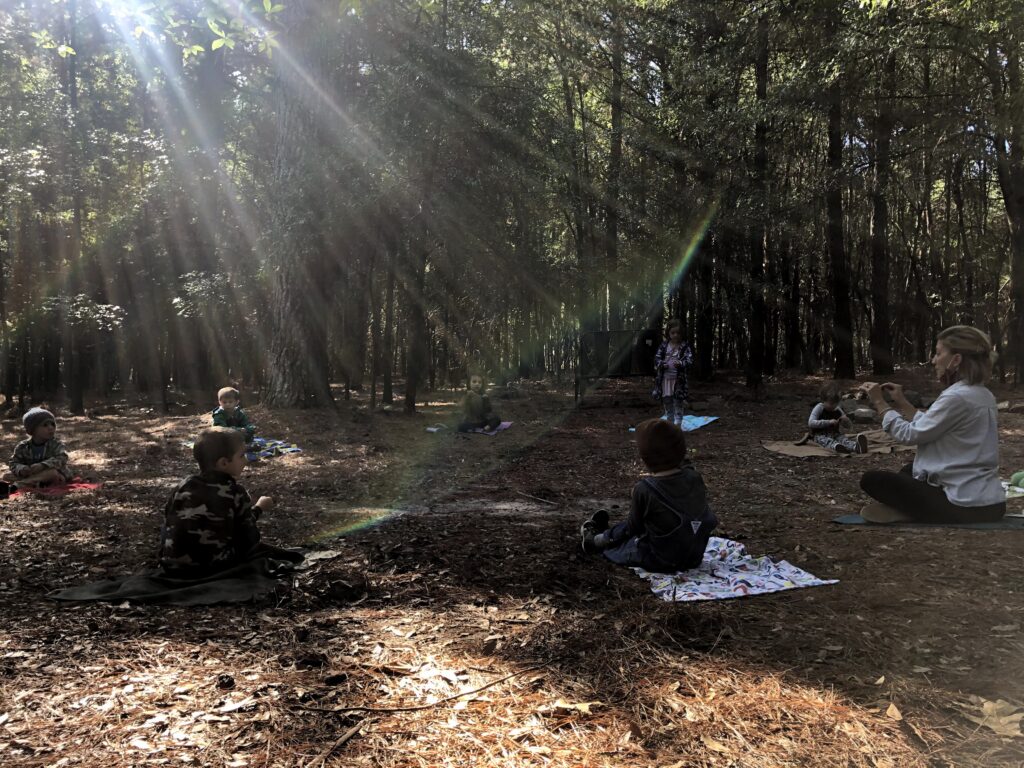
Our Wild Hearts Preschool offers a nurturing and enriching environment for children ages 3-6 years old. Led by experienced nature guides, our program fosters curiosity, creativity, and a deep connection to the natural world.
- Class sizes: Up to 18 children
- Attendance Options: Choose 2, 3, or 5 mornings per week
- Hours: 8:45-12:45
Location:
Our programs are held at our beautiful Linden Road campus behind the Congregational Church of Pinehurst, our gracious hosts since 2014.
Students in our preschool classrooms work through a series of Montessori exercises at their own pace. Guides provide individual and small group lessons throughout the 3-hour work cycle. Students are free to choose and complete their work independently and to take breaks as needed to move their bodies, rest, or eat. Our outdoor classrooms offer hands-on learning through a wide variety of materials and exercises, often these are created using natural materials found within their learning spaces. Instruction is child-led and specifically designed to meet the needs of children within this unique developmental phase. The areas of learning are outlined below:
practical life
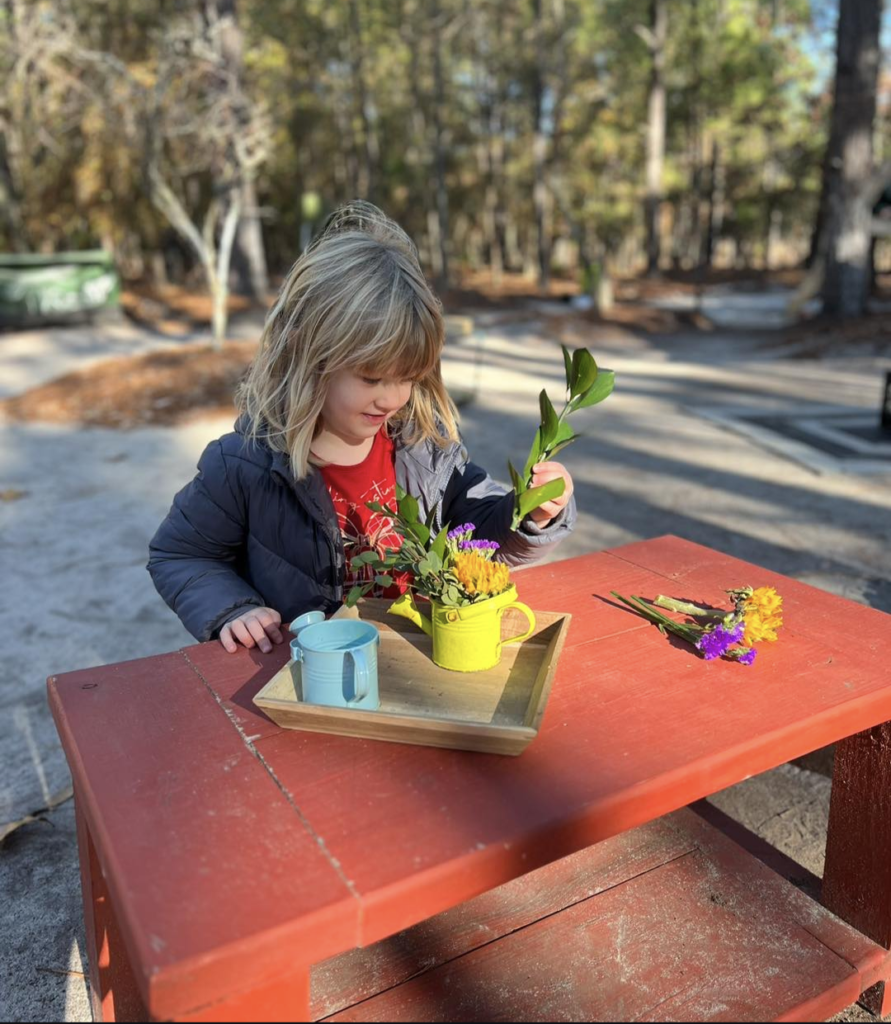
Practical Life exercises offer opportunities for children to practice and learn self-care, care of the environment, and care of others, allowing for fine and gross motor development while building the child’s ability to concentrate. Children learn skills related to working outdoors such as gardening, raking, flower arranging, and woodworking, but also learn to use tools like tongs, tweezers, scissors, glue and even kitchen tools among the many other things you might expect to see in any indoor preschool clasroom.
sensorial
Montessori sensorial materials are designed to develop the child’s senses, specifically sight, touch, hearing, taste, and smell. They are carefully constructed to isolate specific sensory qualities and allow the child to explore and understand them independently. Our outdoor classrooms contain some of the authentic Montessori materials, but also some uniquely hand-crafted materials created by our guides to withstand the elements of the outdoor environment.
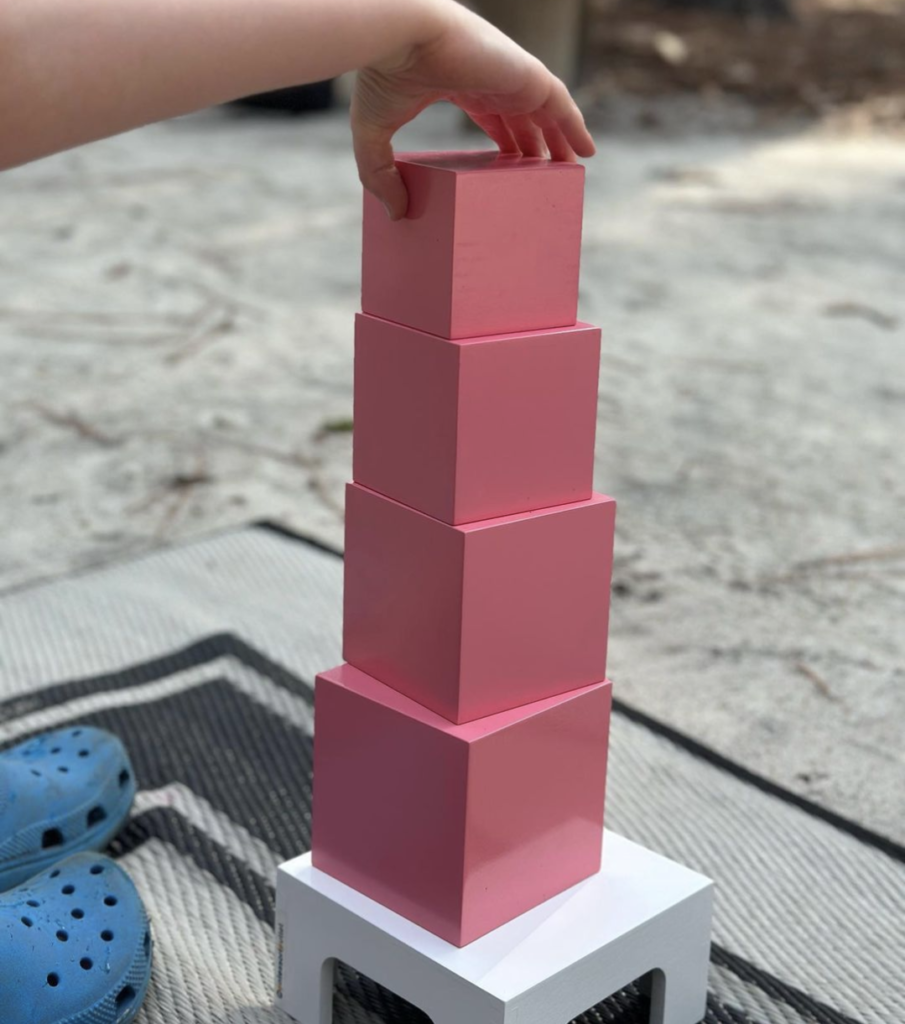
language
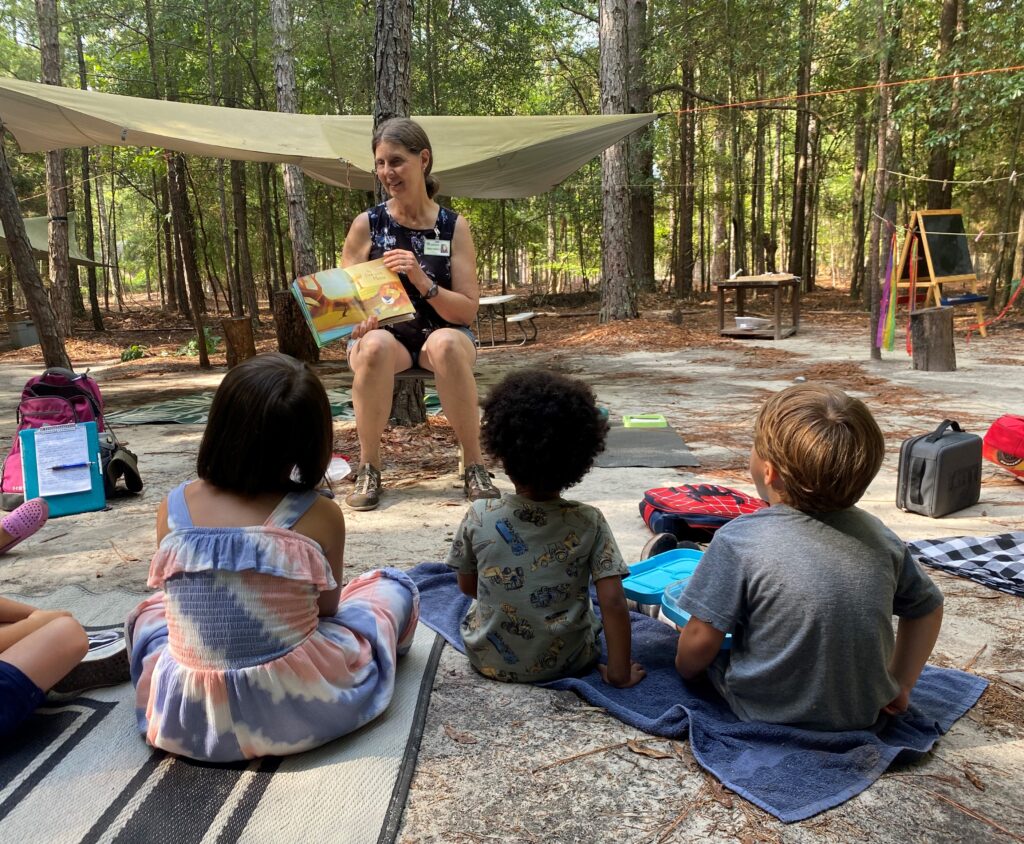
Children in our classrooms learn language through rich experiences like storytelling, language games, and of course, meaningful conversations often inspired by the sights and sounds of nature all around them.
Students learn letter sounds using tactile materials and are taught phonics in a systematic way, progressing from simple sounds to more complex words and patterns.
math
Montessori math materials are designed to introduce children to mathematical concepts in a concrete and hands-on way. They are carefully constructed to isolate specific mathematical qualities and allow children to explore and understand them independently. These materials are used in a specific sequence to gradually introduce children to mathematical concepts. By working with these materials, children develop a strong foundation in math and a positive attitude toward learning.
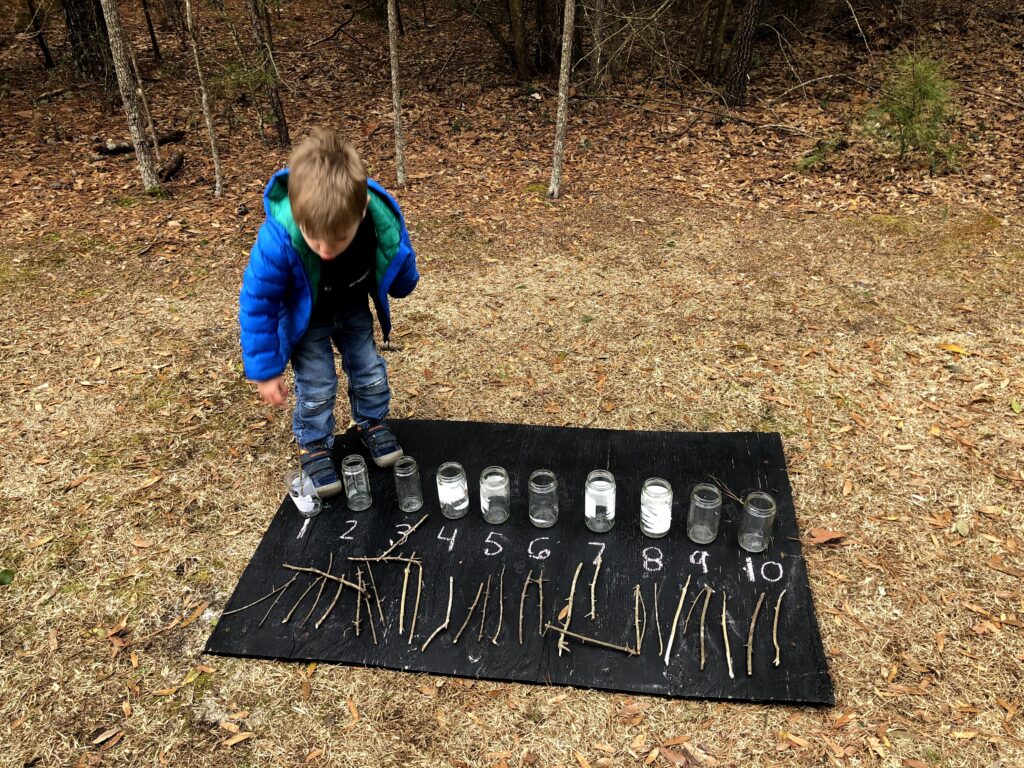
cultural learning
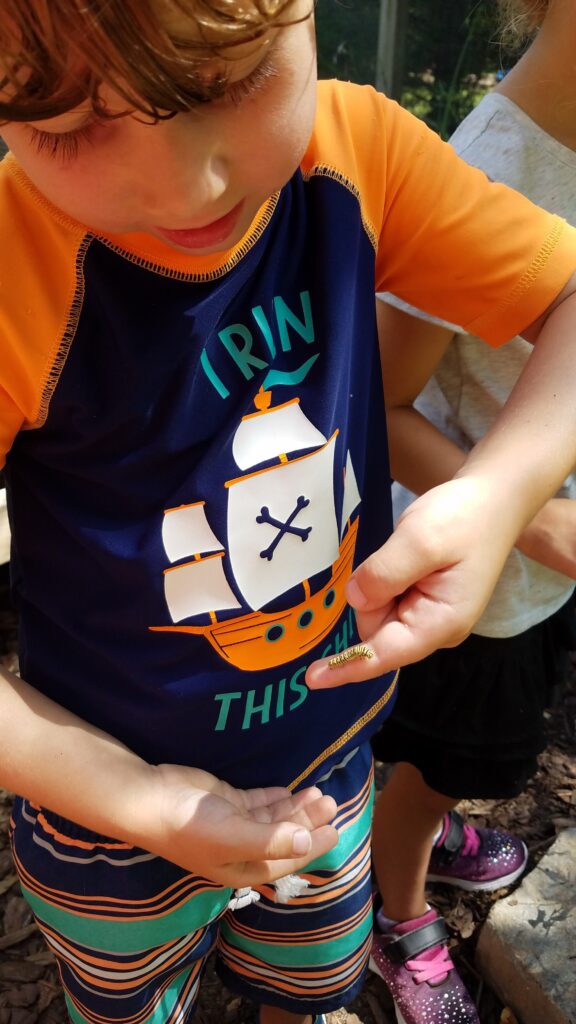
Cultural subjects introduce children to the world around them encompassing a wide range of topics, including geography, botany, zoology, physical science, history and culture. This is where learning really comes to life in our outdoor setting, fostering a sense of wonder and curiosity about the world, while also developing critical thinking skills and a respect for diversity. Children are encouraged to ask questions, make observations, and draw their own conclusions.
These areas present a brief outline of what children can learn during their time at Wild Hearts. There is always more to learn, and because our guides tap into the child’s unique interests when planning lessons, children are focused and happy to learn and practice. The environment allows for children to develop intrinsic motivation without the need for rewards or punishments; Dr. Montessori found that the satisfaction of completing work and gaining a skill is all the child needs to feel inner peace and contentment. Because the children are focused on their education, and because peace is a focus of the classroom, discipline problems in a Montessori classroom are rare but are always handled gently through lessons in Grace & Courtesy, and modeled consistently by the guides themselves.